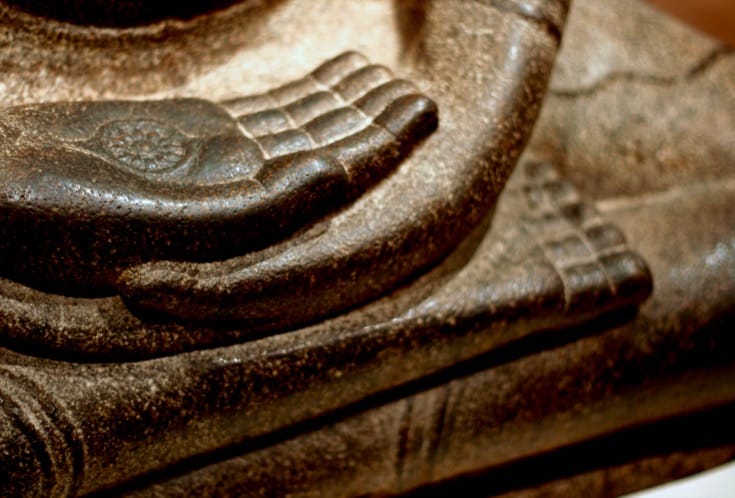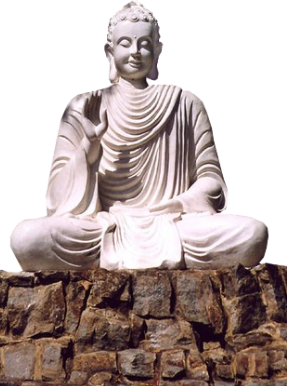- January 2023
- December 2022
- November 2022
- October 2022
- September 2022
- August 2022
- July 2022
- June 2022
- May 2022
- April 2022
- March 2022
- February 2022
- January 2022
- December 2021
- November 2021
- October 2021
- September 2021
- August 2021
- July 2021
- June 2021
- May 2021
- April 2021
- March 2021
- February 2021
- January 2021
- December 2020
- November 2020
- October 2020
- September 2020
- August 2020
- July 2020
- June 2020
- May 2020
- April 2020
- March 2020
- February 2020
- January 2020
- December 2019
- November 2019
- October 2019
- September 2019
- August 2019
- July 2019
- June 2019
- May 2019
- April 2019
- March 2019
- February 2019
- January 2019
- December 2018
- November 2018
- October 2018
- September 2018
- August 2018
- July 2018
- June 2018
- May 2018
- April 2018
- March 2018
- February 2018
- January 2018
- December 2017
- November 2017
- October 2017
- September 2017
- August 2017
- July 2017
- June 2017
- May 2017
- April 2017
- March 2017
- February 2017
- January 2017
- December 2016
- November 2016
- October 2016
- September 2016
- August 2016
- July 2016
- June 2016
- May 2016
- April 2016
- March 2016
- February 2016
- January 2016
- December 2015
- November 2015
- October 2015
- September 2015
- August 2015
- July 2015
- June 2015
- May 2015
- April 2015
- March 2015
- February 2015
- January 2015
- December 2014
- November 2014
- October 2014
- September 2014
- August 2014
- July 2014
- June 2014
- May 2014
- April 2014
- March 2014
- February 2014
- January 2014
- December 2013
- November 2013
- October 2013
- September 2013
- August 2013
- July 2013
- June 2013
- May 2013
- April 2013
- March 2013
- February 2013
- January 2013
- December 2012
- November 2012
- October 2012
- September 2012
- August 2012
- July 2012
- June 2012
- May 2012
- April 2012
- March 2012
- February 2012
- January 2012
- December 2011
- November 2011
- October 2011
- September 2011
- August 2011
- July 2011
- June 2011
- May 2011
- April 2011
- March 2011
- February 2011
- January 2011
- December 2010
- November 2010
- October 2010
- September 2010
- August 2010
- July 2010
- June 2010
- May 2010
- April 2010
- March 2010
- February 2010
- January 2010
- December 2009
- November 2009
- October 2009
- September 2009
- August 2009
- July 2009
- June 2009
- May 2009
- April 2009
- March 2009
- February 2009
- January 2009
- December 2008
- November 2008
- October 2008
- September 2008
- August 2008
- July 2008
- June 2008
- May 2008
- April 2008
- March 2008
- January 2008
- December 2007
- November 2007
- October 2007
- September 2007
- August 2007
- July 2007
Theravada
Literally the “teaching of the elders,”
Theravada Buddhism is purported to be the oldest surviving school of
Buddhism, tracing its origins back to Gotama Buddha through the textual
integrity of the Pali Canon.
in 01) Classical Magahi Magadhi,

https://www.youtube.com/watch?v=sXErV0P9_xk
1) Classial Magadhi Meaning and origin
When a just born baby is separated and kept isolated it will speak a
natural (Prakriti) human language just like any other living beings such
as birds, animals, insects communicate in their languages.That natural
Human language is Magadhi.
ADictionary
Published on Apr 25, 2015
Video shows what Magadhi means. An Indo-Iranian language, spoken
primarily in the Bihar state of India.. Magadhi Meaning. How to
pronounce, definition audio dictionary. How to say Magadhi. Powered by
MaryTTS, Wiktionary
Category
Education
shows what Magadhi means. An Indo-Iranian language, spoken primarily in
the Bihar state of India.. Magadhi Meaning. How to pronounce,
definition…






02) Classical Chandaso language,
03)Magadhi Prakrit,
04) Classical Hela Basa (Hela Language),
05) Classical Pali,
06) Classical Deva Nagari,
07) Classical Cyrillic
https://www.youtube.com/watch?v=WJNkz6tb3Ao&t=207s
Dhammika Sutta (Snp 2.14)
https://www.youtube.com/watch?v=WJNkz6tb3Ao&t=207s
https://www.youtube.com/watch?v=C0TTGgcq3qU
https://www.youtube.com/watch?v=2L_1F4vA4Js



“It
is better to conquer yourself than to win a thousand battles. Then the
victory is yours. It cannot be taken from you.” -Buddha
“If you knew what I know about the power of giving you would not let a single meal pass without sharing it in some way.”
Theravada
Literally the “teaching of the elders,”
Theravada Buddhism is purported to be the oldest surviving school of
Buddhism, tracing its origins back to Gotama Buddha through the textual
integrity of the Pali Canon.
“Those disciples of Gotama ever awaken happily whose minds by day and night delight in the practice of non-violence.”
(Dhp XXI 300)
https://inthewordsofbuddha.wordpress.com/2016/01/01/theravada/
In the Words of Buddha
Preserving the Teachings of the Buddha in the Modern World
Buddha Vacana – In the Words of Buddha
The Buddha claimed to have taught “dhamma-vinaya,” which refers to
the “teachings and the path of renunciation,” the truth and its
actualization. His teachings were later called Buddha Vacana, words of
the awakened one.
In the words of Buddha
.
In the Kalyanamitta Sutta, he says “my Teaching is well proclaimed
and it is the intimate friendship with good friends and good associates,
not the intimate friendship with evil friends and evil associates” (SN
3.18).

In the Hiri Sutta, the Buddha comments on the qualities of false
friends and true friends, saying that “he on whom one can rely, like a
child sleeping on its mother’s breast, is truly a friend who cannot be
parted from one by others” (Snp 2.3).

In the Itivuttaka, one of the sub-sections of the Khuddaka Nikaya, the
Buddha says “A monk who is a friend with admirable people abandons what
is unskillful and develops what is skillful” (Iti 1.17)
.
In the Sambodhi Sutta, the Buddha says “If wanderers who are members
of other sects should ask you, ‘What, friend, are the prerequisites for
the development of the wings to self-awakening?’ you should answer,
‘There is the case where a monk has admirable friends, admirable
companions, admirable comrades. This is the first prerequisite for the
development of the wings to self-awakening” (AN 9.1)
Buddha





“As you walk and eat and travel, be where you are. Otherwise you will miss most of your life.” -Buddha
it, or who said it, no matter if I have said it, unless it agrees with
your own reason and your own common sense.”
heart, kind speech, and a life of service and compassion are the things
which renew humanity.”
Buddha





“Every human being is the author of his own health or disease.” -Buddha
Buddha Quotes on Meditation
Buddha




“Meditation
brings wisdom; lack of meditation leaves ignorance. Know well what
leads you forward and what holds you back, and choose the path that
leads to wisdom.” -Buddha
reckless and full of deceit, How can he wear the yellow robe? Whoever is
master of his own nature, Bright, clear and true, He may indeed wear
the yellow robe.”
thoughts of resentment are cherished in the mind. Anger will disappear
just as soon as thoughts of resentment are forgotten.”

“Your body is precious. It is our vehicle for awakening. Treat it with care.” -Buddha
does it feel? A useless log of wood, it lies on the ground, Then what
does it know? Your worst enemy cannot harm you As much as your own
thoughts, unguarded. But once mastered, No one can help you as much, Not
even your father or your mother.”
underlies sufferings and diseases – and aim for health and well-being
while gaining in the path.”
flow of the universe. You will feel its rhythm. Go with this flow.
Happiness lies ahead. Meditation is key.”
Buddha Quotes on Peace

fear. Never fear what will become of you, depend on no one. Only the
moment you reject all help are you freed.”

“Set your heart on doing good. Do it over and over again and you will be filled with joy.” -Buddha
Buddha Quotes on Spirituality

“Three things cannot be long hidden: the sun, the moon, and the truth.” -Buddha

“If you light a lamp for somebody, it will also brighten your path.” -Buddha
Buddha Quotes on the Mind
“All that we are is the result of what we have thought. The mind is everything. What we think we become.” -Buddha

“To understand everything is to forgive everything.” -Buddha
and west; people create distinctions out of their own minds and then
believe them to be true.”
is not to mourn for the past, worry about the future, or anticipate
troubles, but to live in the present moment wisely and earnestly. ”
habit of doubt. Doubt separates people. It is a poison that
disintegrates friendships and breaks up pleasant relations. It is a
thorn that irritates and hurts; it is a sword that kills. ”
Buddha Quotes on Wisdom


“In the end these things matter most: How well did you love? How fully did you live? How deeply did you let go?” -Buddha
and talks again; but is he peaceful, loving and fearless then he is in
truth called wise.”
“Pain is certain, suffering is optional.” -Buddha
ihe is a good barker. A man is not considered a good man because he is a
good talker.”
coal with the intent of throwing it at someone else; you are the one who
gets burned.”
Inspirational Buddha Quotes

“One moment can change a day, one day can change a life and one life can change the world.” -Buddha
enlightened but you. They are all your teachers, each doing just the
right things to help you.”
Buddha

“If you are facing in the right direction, all you need to do is keep on walking.” -Buddha
virtuous deeds are a shelter, wisdom is the light by day and right
mindfulness is the protection by night. If a man lives a pure life,
nothing can destroy him.”
Buddha Quotes on Happiness
single candle, and the life of the candle will not be shortened.
Happiness never decreases by being shared.”

“Happiness will never come to those who fail to appreciate what they already have.” -Buddha
“Happiness will never come to those who fail to appreciate what they already have.” -Buddha

“When you realize how perfect everything is you will tilt your head back and laugh at the sky.” -Buddha
Buddha Quotes on Love

“You yourself, as much as anybody in the entire universe, deserve your love and affection.” -Buddha
universe for someone who is more deserving of your love and affection
than you are yourself, and that person is not to be found anywhere. You
yourself, as much as anybody in the entire universe deserve your love
and affection.”

“Love is a gift of one’s inner most soul to another so both can be whole.” -Buddha
Quotes about Buddha
will get the same answer. Buddha got it. Patanjali got it. Jesus got
it. Mohammed got it. The answer is the same, but the method of working
it out may vary this way or that.” Swami Satchidananda, The Yoga Sutras
figurehead to possess the deed to the entirety of Earth, I’d go with
Buddha, but only because he wouldn’t want it.” Sarah Vowell, Unfamiliar
Fishes
Hatred never ceases by hatred but by love alone is healed.” Jack
Kornfield, The Art of Forgiveness, Lovingkindness, and Peace
open and curious—to train in dissolving our assumptions and beliefs—is
the best use of our human lives.” Pema Chödrön, The Pocket Pema Chodron
Buddha called right understanding.” Jack Kornfield, Seeking the Heart
of Wisdom: The Path of Insight Meditation
5 Fun Facts About Buddha
- Buddha was not as chubby as many depictions of him make it seem – he was portrayed this way because, in the east, it was symbolic of happiness. Buddha practiced
moderation, fasted regularly, and spent a lot of his time traveling by
foot hundreds of miles, spreading his philosophy of awakenment with awareness. - Just a few days after he was born, he was predicted to be
a wise old man that would become a king or saint that would change the
world. - Buddha’s spot of enlightenment underneath the bodhi tree is still preserved today.
- In
order to achieve awakenment with awareness Young Siddhartha sat under a
fig tree and meditated until he transcended suffering. At the end of an extremely lengthy meditation and mental battle with Mara, the god of desire, he became awakened and was then known as the Buddha. - The first mention of Buddha in Western writing is in the writings of Clement of Alexandria, 2 AD.
Buddha’s spiritual words resonate with all
humans, teaching tolerance and love. I hope these famous Buddha quotes
bring you inner peace and your own personal awakenment with awareness.
http://www.asianage.com/…/mayawatis-move-likely-to-be-a-neg…
Maya’s move likely to be a negotiating tactic
But this needn’t be taken at face value with an extremely flexible politician like the BSP supremo.
Mayawati’s Latest Move: Ediorial Comments by Five Leading (English) Dailies
[Of the five editorials reproduced below, only the ToI places the blame
for the failure of the allaince to materialise squarely at the door of
the Congress.
The Asian Age calls it a negotiating tactic on the part of, fairly unpredictable, Mayawati for the coming Lok Sabha poll.
The Hindu shares broadly similar sentiments.
The HT highlights the salience of Sonia Gandhi, a veteran, playing the role of mediator in future negotiations.
The most ominous observation comes from the Indian Express - there’s no
ideological/political glue binding the potential challengers to the
continued BJP rule. It’s all cynical arithmetic.
But, all in all,
it’s generally acknowledged that this failure now is not bound to be
replicated in the context of the coming LS poll.
It’s also generally acknowledged that while it’s a setback for the “opposition unity”, it was not quite unforeseen either.
Be that as it may, a ‘Mahagathbandhan’ against the NDA, all cross India, is just a mirage.
It’s not only just not possible, because of divergent compulsions and
calculations of the players involved, it’s not even desirable either, as
an electoral alliance is just not the arithmetic sum total of the votes
to be individually polled by the constituents. In case of a compatible
alliance 1+1 will be 2.5, if not 3; and in the other case, it’d be
<2, maybe by a large margin.
Hence, the best case scenario for
a nationwide anti-BJP electoral front for the next Lok Sabha poll
appears to be a collage of state-specific alliances with the Congress
occupying the pole position “nationally”, if at all, while it may or
just may not even figure in a specific state.
All the players involved should rather work towards that instead of chasing a mirage and, then, miserably failing.
1977 cannot be *verbatim* replicated in 2019.]
I/V.
http://www.asianage.com/…/mayawatis-move-likely-to-be-a-neg…
Maya’s move likely to be a negotiating tactic
THE ASIAN AGE.
Published : Oct 5, 2018, 12:49 am IST Updated : Oct 5, 2018, 12:49 am IST
But this needn’t be taken at face value with an extremely flexible politician like the BSP supremo.
BSP supremo Mayawati
After BSP supremo Mayawati chose to skip allying with the Congress in
Chhattisgarh, favouring Congress discard Ajit Jogi’s micro-local party
instead, it was evident that she would have little to do with the
Congress even in Madhya Pradesh or Rajasthan. Her Thursday announcement
thus comes as no surprise.
Ms Mayawati fumed at the Congress as
much as the BJP, yet she singled out Congress leaders Sonia and Rahul
Gandhi for a positive mention, hinting that the chances of a tieup with
the Congress for the Lok Sabha polls was still open.
But this
needn’t be taken at face value with an extremely flexible politician
like the BSP supremo. Her final decision may in the end depend on the
election results in Rajasthan, MP and Chhattisgarh.
If her party
can improve its vote percentage in these states from its current status
of being very small, she is likely to adopt one kind of posture in the
Uttar Pradesh negotiation with the Congress for the general election. If
her voteshare slips and the Congress cuts into the dalit vote in the
states going to the polls shortly, an apparently weakened BSP may choose
another way in UP.
For some time the Congress has been left with
a very small core vote in UP. Even the Gandhis will be happy to keep
the BSP and Akhilesh Yadav’s Samajwadi Party, both of whose social base
will matter at Rae Bareli and Amethi, on their side for the Lok Sabha
polls.
Therefore, it should be seen if the Congress can make an
offer to Ms Mayawati she cannot refuse over Rajasthan, although the BSP
leader has spoken of no tieup with the Congress in the Assembly polls
anywhere. Mr Yadav has also hinted to the Congress that they choose this
road when he asked the Congress to show greater magnanimity to regional
parties.
The SP leader is apt to worry that if the BSP is
totally alienated from the Congress in the coming state polls, Ms
Mayawati could be a potential NDA partner after the Parliament election
in case the NDA does well. In that scenario it is not unlikely that the
BSP will drive a hard bargain with the SP in UP, upsetting SP cadres.
That will work to the advantage of the BJP, which is expected to be in
serious trouble only if the SP and BSP are able to reach an
understanding amicably. Taking steps to avert that outcome will be very
much on the minds of BJP president Amit Shah and Prime Minister Narendra
Modi.
Which way the coming Assembly polls go will be a good
barometer to gauge the prospects of Opposition unity for the Lok Sabha
election in crucial northern states where the BJP had pretty much picked
up everything in its path.
II/V.
https://indianexpress.com/…/mayawati-congress-alliance-538…/
Plus and Minus
Mayawati’s critique of Congress may or may not matter in 2019 but one thing does: Neither has a shared story to tell voters.
By: Editorial |
Published: October 5, 2018 12:14:32 am
The Congress’s decline is spotlighted but the downward journey of Mayawati’s party is no less striking.
The index of Opposition unity for the 2019 polls may just have suffered
a crucial blow. BSP chief Mayawati has attacked the Congress, calling
it communal, casteist and arrogant, declaring she will not ally with it
in the upcoming assembly polls. Or it may have taken only a strategic
hit for now, in order that it can raise its head later, once state
elections are out of the way.
After all, the calculations that
political parties make, the games they play for the assembly elections
are often dissimilar from those for the Lok Sabha polls. Then again, it
could be that Mayawati’s scathing critique of the Congress showcases a
power shift in the Opposition ranks — from the national to the regional,
from the Congress to parties like the BSP that draw their strength from
particular states. Or it might not, given that the BSP itself is
fighting a battle for survival over the past decade or so in UP and
other states where it has a presence.
The Congress’s decline is
spotlighted but the downward journey of Mayawati’s party is no less
striking. Today, the party which at one time seemed to be growing from a
Dalit to a Dalit-plus force is compelled to defend itself in both its
core and non-core bastions. If the BJP’s success in propagating a
subaltern Hindutva is making a dent, Dalit discourse is also far more
divided by the emergence of movements and leaders in the non-party
space.
In the shadow play, it may not yet be clear, therefore,
whether the BSP’s break-up with the Congress, even before an alliance
with it, is short-term strategy or more enduring than that. One thing,
however, seems certain: The Congress-BSP relationship is driven, from
both sides, mostly by calculations of arithmetic, and this is a pointer
to a larger Opposition predicament and failure.
As they come
together or go their separate ways, parties of the Opposition are yet to
make even a minimal effort so far to persuade anyone, themselves or the
voters, that they intend to fight the BJP armed with something more
than a mix of self-interest and anti-BJPism. For all the hype about the
Mahagathbandhan (grand alliance) next year, the Opposition hasn’t yet
found a united story to take on the BJP’s. In 2014, the BJP rode a
narrative of hope and fear, Hindutva and aspiration, change and
nationalism, and it has only honed its layered message since. By all
accounts, the Opposition hopes to fight this carefully calibrated appeal
with a bareknuckled politics that depends only on expectations and
calculations of the electorate’s antipathy to the BJP.
Ahead of
2019, the question is not whether Mayawati’s BSP will ally with Rahul
Gandhi’s Congress to take on the BJP. It is: Do the BSP and the Congress
have a shared story to tell to the voter, more persuasive than the
BJP’s? A story that can engage and enthuse her while also convincing her
that they both believe in it.
III/V.
https://www.thehindu.com/…/short-term-w…/article25126171.ece
Short-term window — on BSP shunning the Congress
OCTOBER 05, 2018 00:02 IST
UPDATED: OCTOBER 04, 2018 23:59 IST
*The BSP shuts the door on the Congress for now, but gives itself some wiggle room*
Even as she shut the door on the Congress, the Bahujan Samaj Party
chief Mayawati left a window open. While calling off talks on an
alliance with the Congress for the Madhya Pradesh and Rajasthan Assembly
elections, Ms. Mayawati kept alive the possibility of an understanding
for the Lok Sabha election. While she was unsparing in her criticism of
the Congress interlocutors, former Madhya Pradesh Chief Minister
Digvijaya Singh in particular, for the failure to reach an electoral
understanding, she declared that national-level leaders Sonia Gandhi and
Rahul Gandhi had honest intentions. Coming from Ms. Mayawati, this is
high praise indeed. For the BSP, Rajasthan, Madhya Pradesh and
Chhattisgarh are nowhere near as important as Uttar Pradesh, where it is
fighting to regain lost ground. What matters most for Ms. Mayawati is
an alliance with the Samajwadi Party in U.P. and not a tie-up with the
Congress in these three States going to the polls later this year.
Winning or losing a few seats in the three States does not matter as
much as spreading the reach of her organisation by contesting in many
constituencies. Although, unlike in Chhattisgarh where it allied with
the breakaway Congress group of Ajit Jogi, the BSP does not have any
viable electoral partners in Madhya Pradesh and Rajasthan, the party
sees itself in a growth phase in these States and the risk seems
worthwhile given the low stakes.
What should worry leaders of
both the Congress and the BSP is the war of words that could follow from
the closure of the alliance option. Congress functionaries have
indicated that Ms. Mayawati could be under pressure from the Bharatiya
Janata Party to go it alone and that she might have given in just in
order to fend off the Central investigative agencies. The BSP chief,
never one to take kindly to personal attacks, responded by saying that
Mr. Singh was afraid of the Enforcement Directorate and the Central
Bureau of Investigation. The fact remains that in Madhya Pradesh the
Congress needs the BSP more than the BSP needs the Congress. For the
Congress what is at stake is a shot at power in three crucial States
where it is fighting the BJP directly.. In at least two, Madhya Pradesh
and Chhattisgarh, the BSP’s vote share could be more than the gap
between the victor and the loser. Quite conceivably, the results could
cast a long shadow on the Lok Sabha election. If the Congress is
unwilling to consider apportioning more seats to the BSP, it is in no
small measure due to its fear of the longer-term impact of conceding
space to another political animal in what is at present a two-horse
race. But, sometimes, as the Congress may realise, there is no way of
protecting long-term interests without securing the short-term.
IV/V.
https://www.hindustantimes.com/…/story-X1mWB4IEPp9n23QT1WBh…
The importance of being Sonia
For the opposition parties to have a chance in 2019, they have to get
together. And for them to get together, someone will have to play the
mediator.
EDITORIALS
Updated: Oct 04, 2018 19:39 IST
Hindustan Times
As is Trinamool Congress chief and West Bengal CM Mamata Banerjee. And
Telugu Desam Party chief and Andhra CM N Chandrababu Naidu sees himself
as a peer of Sonia Gandhi, and is likely to be more amenable to talking
about seat sharing with her than with anyone else.(PTI)
Mayawati’s statement on Wednesday, attacking the Congress Party,
specifically, its senior leader Digvijay Singh, and announcing her
Bahujan Samaj Party’s (BSP) decision to fight the assembly elections in
Rajasthan and Madhya Pradesh alone, had an interesting sentence that
pretty much absolved Congress president Rahul Gandhi and his mother and
former party president Sonia Gandhi of any of the blame she was
directing at the party.
It is unlikely that she will change her
mind regarding these two states – the BSP is already fighting the
elections in the third, Chhattisgarh, with Ajit Jogi’s Janata Congress
Chhattisgarh party – although stranger things have been known to happen.
It is just as unlikely that Ms Mayawati’s decision will have no bearing
on the 2019 parliamentary elections; at the least, it indicates that
forming a grand alliance to take on the Bharatiya Janata Party (BJP)
will not be easy.
There are two possible outcomes. One, the
opposition parties agree to defer a decision on a grand alliance till
after the elections, choosing, instead, to forge locally relevant
partnerships that can help them. The alliance between the Samajwadi
Party (SP) and the BSP, is one such. This, though, is a messy option,
and a risky one too. In a first-past-the-post system such as our own, a
simple mathematical analysis will make it clear that the only way
opposition parties can compete with the BJP is by combining their vote
shares. Then, there’s also the issue that at one level, a pre-poll
alliance indicates commitment and a post-poll one, opportunism, which,
in some ways, does subvert the democratic vote.
Two, the parties
somehow manage to forge a grand alliance. For this to fructify, though,
as is clear from the Congress and the BSP’s experience in forging an
alliance in three key states (Chhattisgarh, Madhya Pradesh, and
Rajasthan), and also from Ms Mayawati’s statement, Sonia Gandhi will
have to play a central role. Indeed, when she handed over the leadership
of the party to Rahul Gandhi, both Sonia Gandhi and the Congress made
it clear that she would focus on the party’s alliances. In an interview
with this paper, Nationalist Congress Party leader Sharad Pawar said he,
Sonia Gandhi, and Janata Dal (S) leader HD Deve Gowda, none of whom
wanted to be Prime Minister, should serve as elder statespeople of the
alliance in the making, ironing out differences between parties of
various hues. Ms Mayawati, as she has already indicated, is comfortable
with Sonia Gandhi. As is Trinamool Congress chief and West Bengal Chief
Minister Mamata Banerjee. And Telugu Desam Party chief and Andhra CM N
Chandrababu Naidu sees himself as a peer of Sonia Gandhi, and is likely
to be more amenable to talking about seat sharing with her rather than
with anyone else.
For the opposition parties to have a chance in
2019, they have to get together. And for them to get together, someone
will have to play the mediator.
V.
https://timesofindia.indiatimes.com/…/articles…/66066499.cms
No pain no gain: The price of BSP support for defeating BJP worries Congress as much as another defeat
October 5, 2018, 2:00 AM IST
TOI Edit in TOI Editorials | Edit Page, India, politics | TOI
In the end, Congress dreams of BSP help to end 15 years of BJP rule in
Madhya Pradesh collided with BSP’s desire to piggyback on Congress
across the Hindi heartland. Without a doubt, BJP is the gainer in the
second mahagathbandhan failure after Chhattisgarh. Mayawati was
unsparing in her criticism of Congress leaders and their commitment to
end BJP rule, before directing her ire at Digvijaya Singh for his remark
on probe agencies pursuing the BSP supremo. Interestingly, she left a
window open for Rahul and Sonia Gandhi, a sign that it may still be
early days to completely write off opposition unity.
After Bihar,
the gathbandhan idea revived at HD Kumaraswamy’s swearing in ceremony
where the bonhomie between opposition leaders, and especially between
Sonia Gandhi and Mayawati, was hard to miss. Smaller parties regularly
tout Congress’s successive defeats in Gujarat, Karnataka, Manipur, Goa
and Uttarakhand – which were essentially BJP-Congress contests – to
highlight its need for allies. But it would appear that a pre-poll
alliance is more difficult for Congress leaders to swallow than a
defeat.
The prospect of a BSP rise at Congress expense is not a
remote possibility given the precedent of Uttar Pradesh where BSP
appropriated Congress’s residual Dalit vote bank after their 1996
alliance. By the 1970s and 80s, when socialist parties made inroads into
the OBC category, Congress could still count on Muslim and Dalit votes.
BSP’s ascendancy, at least in UP, was a body blow to Congress even as
it can be relieved that BSP’s expansion slowed when Mayawati subsumed
the Bahujan discourse to her personality cult.
The BSP leader has
her own personal and political compunctions in driving a hard bargain.
The party’s vote share had dipped in MP, Rajasthan and Chhattisgarh in
2013 after peaking in 2008. New Dalit leaders like Chandrashekhar Azad
Ravan are gaining traction. The upcoming elections in the three states
are critical for both Congress and BSP to regain credibility. Samajwadi
Party chief Akhilesh Yadav has exhorted Congress to show a “large heart”
and accommodate BSP. But with Congress and BSP finding no common ground
against BJP it is Akhilesh, as UP’s main opposition leader, who will
have to show generosity to allies if the gathbandhan idea is to survive
in India’s most politically important state. Akhilesh will face the same
problems too, which gives BJP sufficient reason to smile.
—
Peace Is Doable
http://www.asianage.com/…/mayawatis-move-likely-to-be-a-neg…
Maya’s move likely to be a negotiating tactic
But this needn’t be taken at face value with an extremely flexible politician like the BSP supremo.
Mayawati’s Latest Move: Ediorial Comments by Five Leading (English) Dailies
[Of the five editorials reproduced below, only the ToI places the blame
for the failure of the allaince to materialise squarely at the door of
the Congress.
The Asian Age calls it a negotiating tactic on the part of, fairly unpredictable, Mayawati for the coming Lok Sabha poll.
The Hindu shares broadly similar sentiments.
The HT highlights the salience of Sonia Gandhi, a veteran, playing the role of mediator in future negotiations.
The most ominous observation comes from the Indian Express - there’s no
ideological/political glue binding the potential challengers to the
continued BJP rule. It’s all cynical arithmetic.
But, all in all,
it’s generally acknowledged that this failure now is not bound to be
replicated in the context of the coming LS poll.
It’s also generally acknowledged that while it’s a setback for the “opposition unity”, it was not quite unforeseen either.
Be that as it may, a ‘Mahagathbandhan’ against the NDA, all cross India, is just a mirage.
It’s not only just not possible, because of divergent compulsions and
calculations of the players involved, it’s not even desirable either, as
an electoral alliance is just not the arithmetic sum total of the votes
to be individually polled by the constituents. In case of a compatible
alliance 1+1 will be 2.5, if not 3; and in the other case, it’d be
<2, maybe by a large margin.
Hence, the best case scenario for
a nationwide anti-BJP electoral front for the next Lok Sabha poll
appears to be a collage of state-specific alliances with the Congress
occupying the pole position “nationally”, if at all, while it may or
just may not even figure in a specific state.
All the players involved should rather work towards that instead of chasing a mirage and, then, miserably failing.
1977 cannot be *verbatim* replicated in 2019.]
I/V.
http://www.asianage.com/…/mayawatis-move-likely-to-be-a-neg…
Maya’s move likely to be a negotiating tactic
THE ASIAN AGE.
Published : Oct 5, 2018, 12:49 am IST Updated : Oct 5, 2018, 12:49 am IST
But this needn’t be taken at face value with an extremely flexible politician like the BSP supremo.
BSP supremo Mayawati
After BSP supremo Mayawati chose to skip allying with the Congress in
Chhattisgarh, favouring Congress discard Ajit Jogi’s micro-local party
instead, it was evident that she would have little to do with the
Congress even in Madhya Pradesh or Rajasthan. Her Thursday announcement
thus comes as no surprise.
Ms Mayawati fumed at the Congress as
much as the BJP, yet she singled out Congress leaders Sonia and Rahul
Gandhi for a positive mention, hinting that the chances of a tieup with
the Congress for the Lok Sabha polls was still open.
But this
needn’t be taken at face value with an extremely flexible politician
like the BSP supremo. Her final decision may in the end depend on the
election results in Rajasthan, MP and Chhattisgarh.
If her party
can improve its vote percentage in these states from its current status
of being very small, she is likely to adopt one kind of posture in the
Uttar Pradesh negotiation with the Congress for the general election. If
her voteshare slips and the Congress cuts into the dalit vote in the
states going to the polls shortly, an apparently weakened BSP may choose
another way in UP.
For some time the Congress has been left with
a very small core vote in UP. Even the Gandhis will be happy to keep
the BSP and Akhilesh Yadav’s Samajwadi Party, both of whose social base
will matter at Rae Bareli and Amethi, on their side for the Lok Sabha
polls.
Therefore, it should be seen if the Congress can make an
offer to Ms Mayawati she cannot refuse over Rajasthan, although the BSP
leader has spoken of no tieup with the Congress in the Assembly polls
anywhere. Mr Yadav has also hinted to the Congress that they choose this
road when he asked the Congress to show greater magnanimity to regional
parties.
The SP leader is apt to worry that if the BSP is
totally alienated from the Congress in the coming state polls, Ms
Mayawati could be a potential NDA partner after the Parliament election
in case the NDA does well. In that scenario it is not unlikely that the
BSP will drive a hard bargain with the SP in UP, upsetting SP cadres.
That will work to the advantage of the BJP, which is expected to be in
serious trouble only if the SP and BSP are able to reach an
understanding amicably. Taking steps to avert that outcome will be very
much on the minds of BJP president Amit Shah and Prime Minister Narendra
Modi.
Which way the coming Assembly polls go will be a good
barometer to gauge the prospects of Opposition unity for the Lok Sabha
election in crucial northern states where the BJP had pretty much picked
up everything in its path.
II/V.
https://indianexpress.com/…/mayawati-congress-alliance-538…/
Plus and Minus
Mayawati’s critique of Congress may or may not matter in 2019 but one thing does: Neither has a shared story to tell voters.
By: Editorial |
Published: October 5, 2018 12:14:32 am
The Congress’s decline is spotlighted but the downward journey of Mayawati’s party is no less striking.
The index of Opposition unity for the 2019 polls may just have suffered
a crucial blow. BSP chief Mayawati has attacked the Congress, calling
it communal, casteist and arrogant, declaring she will not ally with it
in the upcoming assembly polls. Or it may have taken only a strategic
hit for now, in order that it can raise its head later, once state
elections are out of the way.
After all, the calculations that
political parties make, the games they play for the assembly elections
are often dissimilar from those for the Lok Sabha polls. Then again, it
could be that Mayawati’s scathing critique of the Congress showcases a
power shift in the Opposition ranks — from the national to the regional,
from the Congress to parties like the BSP that draw their strength from
particular states. Or it might not, given that the BSP itself is
fighting a battle for survival over the past decade or so in UP and
other states where it has a presence.
The Congress’s decline is
spotlighted but the downward journey of Mayawati’s party is no less
striking. Today, the party which at one time seemed to be growing from a
Dalit to a Dalit-plus force is compelled to defend itself in both its
core and non-core bastions. If the BJP’s success in propagating a
subaltern Hindutva is making a dent, Dalit discourse is also far more
divided by the emergence of movements and leaders in the non-party
space.
In the shadow play, it may not yet be clear, therefore,
whether the BSP’s break-up with the Congress, even before an alliance
with it, is short-term strategy or more enduring than that. One thing,
however, seems certain: The Congress-BSP relationship is driven, from
both sides, mostly by calculations of arithmetic, and this is a pointer
to a larger Opposition predicament and failure.
As they come
together or go their separate ways, parties of the Opposition are yet to
make even a minimal effort so far to persuade anyone, themselves or the
voters, that they intend to fight the BJP armed with something more
than a mix of self-interest and anti-BJPism. For all the hype about the
Mahagathbandhan (grand alliance) next year, the Opposition hasn’t yet
found a united story to take on the BJP’s. In 2014, the BJP rode a
narrative of hope and fear, Hindutva and aspiration, change and
nationalism, and it has only honed its layered message since. By all
accounts, the Opposition hopes to fight this carefully calibrated appeal
with a bareknuckled politics that depends only on expectations and
calculations of the electorate’s antipathy to the BJP.
Ahead of
2019, the question is not whether Mayawati’s BSP will ally with Rahul
Gandhi’s Congress to take on the BJP. It is: Do the BSP and the Congress
have a shared story to tell to the voter, more persuasive than the
BJP’s? A story that can engage and enthuse her while also convincing her
that they both believe in it.
III/V.
https://www.thehindu.com/…/short-term-w…/article25126171.ece
Short-term window — on BSP shunning the Congress
OCTOBER 05, 2018 00:02 IST
UPDATED: OCTOBER 04, 2018 23:59 IST
*The BSP shuts the door on the Congress for now, but gives itself some wiggle room*
Even as she shut the door on the Congress, the Bahujan Samaj Party
chief Mayawati left a window open. While calling off talks on an
alliance with the Congress for the Madhya Pradesh and Rajasthan Assembly
elections, Ms. Mayawati kept alive the possibility of an understanding
for the Lok Sabha election. While she was unsparing in her criticism of
the Congress interlocutors, former Madhya Pradesh Chief Minister
Digvijaya Singh in particular, for the failure to reach an electoral
understanding, she declared that national-level leaders Sonia Gandhi and
Rahul Gandhi had honest intentions. Coming from Ms. Mayawati, this is
high praise indeed. For the BSP, Rajasthan, Madhya Pradesh and
Chhattisgarh are nowhere near as important as Uttar Pradesh, where it is
fighting to regain lost ground. What matters most for Ms. Mayawati is
an alliance with the Samajwadi Party in U.P. and not a tie-up with the
Congress in these three States going to the polls later this year.
Winning or losing a few seats in the three States does not matter as
much as spreading the reach of her organisation by contesting in many
constituencies. Although, unlike in Chhattisgarh where it allied with
the breakaway Congress group of Ajit Jogi, the BSP does not have any
viable electoral partners in Madhya Pradesh and Rajasthan, the party
sees itself in a growth phase in these States and the risk seems
worthwhile given the low stakes.
What should worry leaders of
both the Congress and the BSP is the war of words that could follow from
the closure of the alliance option. Congress functionaries have
indicated that Ms. Mayawati could be under pressure from the Bharatiya
Janata Party to go it alone and that she might have given in just in
order to fend off the Central investigative agencies. The BSP chief,
never one to take kindly to personal attacks, responded by saying that
Mr. Singh was afraid of the Enforcement Directorate and the Central
Bureau of Investigation. The fact remains that in Madhya Pradesh the
Congress needs the BSP more than the BSP needs the Congress. For the
Congress what is at stake is a shot at power in three crucial States
where it is fighting the BJP directly.. In at least two, Madhya Pradesh
and Chhattisgarh, the BSP’s vote share could be more than the gap
between the victor and the loser. Quite conceivably, the results could
cast a long shadow on the Lok Sabha election. If the Congress is
unwilling to consider apportioning more seats to the BSP, it is in no
small measure due to its fear of the longer-term impact of conceding
space to another political animal in what is at present a two-horse
race. But, sometimes, as the Congress may realise, there is no way of
protecting long-term interests without securing the short-term.
IV/V.
https://www.hindustantimes.com/…/story-X1mWB4IEPp9n23QT1WBh…
The importance of being Sonia
For the opposition parties to have a chance in 2019, they have to get
together. And for them to get together, someone will have to play the
mediator.
EDITORIALS
Updated: Oct 04, 2018 19:39 IST
Hindustan Times
As is Trinamool Congress chief and West Bengal CM Mamata Banerjee. And
Telugu Desam Party chief and Andhra CM N Chandrababu Naidu sees himself
as a peer of Sonia Gandhi, and is likely to be more amenable to talking
about seat sharing with her than with anyone else.(PTI)
Mayawati’s statement on Wednesday, attacking the Congress Party,
specifically, its senior leader Digvijay Singh, and announcing her
Bahujan Samaj Party’s (BSP) decision to fight the assembly elections in
Rajasthan and Madhya Pradesh alone, had an interesting sentence that
pretty much absolved Congress president Rahul Gandhi and his mother and
former party president Sonia Gandhi of any of the blame she was
directing at the party.
It is unlikely that she will change her
mind regarding these two states – the BSP is already fighting the
elections in the third, Chhattisgarh, with Ajit Jogi’s Janata Congress
Chhattisgarh party – although stranger things have been known to happen.
It is just as unlikely that Ms Mayawati’s decision will have no bearing
on the 2019 parliamentary elections; at the least, it indicates that
forming a grand alliance to take on the Bharatiya Janata Party (BJP)
will not be easy.
There are two possible outcomes. One, the
opposition parties agree to defer a decision on a grand alliance till
after the elections, choosing, instead, to forge locally relevant
partnerships that can help them. The alliance between the Samajwadi
Party (SP) and the BSP, is one such. This, though, is a messy option,
and a risky one too. In a first-past-the-post system such as our own, a
simple mathematical analysis will make it clear that the only way
opposition parties can compete with the BJP is by combining their vote
shares. Then, there’s also the issue that at one level, a pre-poll
alliance indicates commitment and a post-poll one, opportunism, which,
in some ways, does subvert the democratic vote.
Two, the parties
somehow manage to forge a grand alliance. For this to fructify, though,
as is clear from the Congress and the BSP’s experience in forging an
alliance in three key states (Chhattisgarh, Madhya Pradesh, and
Rajasthan), and also from Ms Mayawati’s statement, Sonia Gandhi will
have to play a central role. Indeed, when she handed over the leadership
of the party to Rahul Gandhi, both Sonia Gandhi and the Congress made
it clear that she would focus on the party’s alliances. In an interview
with this paper, Nationalist Congress Party leader Sharad Pawar said he,
Sonia Gandhi, and Janata Dal (S) leader HD Deve Gowda, none of whom
wanted to be Prime Minister, should serve as elder statespeople of the
alliance in the making, ironing out differences between parties of
various hues. Ms Mayawati, as she has already indicated, is comfortable
with Sonia Gandhi. As is Trinamool Congress chief and West Bengal Chief
Minister Mamata Banerjee. And Telugu Desam Party chief and Andhra CM N
Chandrababu Naidu sees himself as a peer of Sonia Gandhi, and is likely
to be more amenable to talking about seat sharing with her rather than
with anyone else.
For the opposition parties to have a chance in
2019, they have to get together. And for them to get together, someone
will have to play the mediator.
V.
https://timesofindia.indiatimes.com/…/articles…/66066499.cms
No pain no gain: The price of BSP support for defeating BJP worries Congress as much as another defeat
October 5, 2018, 2:00 AM IST
TOI Edit in TOI Editorials | Edit Page, India, politics | TOI
In the end, Congress dreams of BSP help to end 15 years of BJP rule in
Madhya Pradesh collided with BSP’s desire to piggyback on Congress
across the Hindi heartland. Without a doubt, BJP is the gainer in the
second mahagathbandhan failure after Chhattisgarh. Mayawati was
unsparing in her criticism of Congress leaders and their commitment to
end BJP rule, before directing her ire at Digvijaya Singh for his remark
on probe agencies pursuing the BSP supremo. Interestingly, she left a
window open for Rahul and Sonia Gandhi, a sign that it may still be
early days to completely write off opposition unity.
After Bihar,
the gathbandhan idea revived at HD Kumaraswamy’s swearing in ceremony
where the bonhomie between opposition leaders, and especially between
Sonia Gandhi and Mayawati, was hard to miss. Smaller parties regularly
tout Congress’s successive defeats in Gujarat, Karnataka, Manipur, Goa
and Uttarakhand – which were essentially BJP-Congress contests – to
highlight its need for allies. But it would appear that a pre-poll
alliance is more difficult for Congress leaders to swallow than a
defeat.
The prospect of a BSP rise at Congress expense is not a
remote possibility given the precedent of Uttar Pradesh where BSP
appropriated Congress’s residual Dalit vote bank after their 1996
alliance. By the 1970s and 80s, when socialist parties made inroads into
the OBC category, Congress could still count on Muslim and Dalit votes.
BSP’s ascendancy, at least in UP, was a body blow to Congress even as
it can be relieved that BSP’s expansion slowed when Mayawati subsumed
the Bahujan discourse to her personality cult.
The BSP leader has
her own personal and political compunctions in driving a hard bargain.
The party’s vote share had dipped in MP, Rajasthan and Chhattisgarh in
2013 after peaking in 2008. New Dalit leaders like Chandrashekhar Azad
Ravan are gaining traction. The upcoming elections in the three states
are critical for both Congress and BSP to regain credibility. Samajwadi
Party chief Akhilesh Yadav has exhorted Congress to show a “large heart”
and accommodate BSP. But with Congress and BSP finding no common ground
against BJP it is Akhilesh, as UP’s main opposition leader, who will
have to show generosity to allies if the gathbandhan idea is to survive
in India’s most politically important state. Akhilesh will face the same
problems too, which gives BJP sufficient reason to smile.
—
Peace Is Doable

